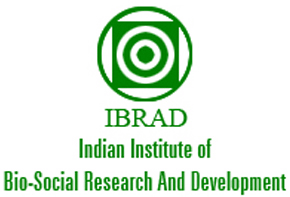Organic Farming – Organic Nutrition garden
Organic farming is the agriculture system that uses inputs for agriculture such as manures and biological pest control of organic origin and practices crop rotation and companion planting. The inputs like manures that are used in organic farming are produced based on the recycling of biological wastes. It follows the integrated farming system approaches based on the principles of sustainability, enhancement of soil fertility and biological diversity. While chemical fertilizers and pesticides have resulted in increasing crop production and productivity but their indiscriminate and irrational uses are having harmful impacts on the soil health including compaction and acidification of soil, loss of soil biodiversity, and fertility, soil and water pollution, air pollution, and climate change. It also requires more irrigation water and lesser shelf life for the crops. The chemical residues in the crops are having a detrimental and long-term effect on human health. Realizing the ill effects of the irrational use of chemical farming there has been an increasing trend towards adopting the organic or natural method of farming to promote sustainability, making the agriculture self-reliant where the inputs can be produced by the farmers/producers themselves, and ensuring food and nutrition safety and security.
IBRAD is promoting the method of organic farming through the development of Organic Nutrition Garden in a parcel of land available with the small holder tribal/ indigenous farmers. It has been a challenge for the small holder, marginal farmers to maintain year-round dietary diversity. The marginal communities particularly, the tribal population suffer from malnutrition. Organic Nutrition Garden provides a viable option to ensure year round sources of vegetables, increase nutritional diversity at the household level. It also provides sources for additional disposable income for the family through the sale of surplus crops.
Since these Nutrition Gardens are mostly established in the parcel of land adjacent to the household it is taken care of mostly by the women and creates a source for their earning. Thereby an additional impact of these Nutrition Gardens is towards empowering the women and also encouraging family farming.
The transfer of technology for organic farming and its adoption requires developing a new culture and social order among the community. IBRAD has developed the training modules for developing capacity of the community members. The trainings are being conducted first by identification of the proactive community volunteers in the villages and formation of Common Interest Groups by them. The Community Resource Persons are trained on the new skills and it is being implemented at the land as Demonstration Centres. The practice is then replicated in the villages by the Community Resource Persons themselves by providing hand holding support. Thus it has emerged as a movement which is community-driven and community-led.
All the inputs required for the production of organic vegetables like organic manures, vermi compost, Neemastra (biological pest control), are produced by the villagers only at the village level making them self reliant.
The Particularly Vulnerable Tribal Groups like Baiga, Kamar, Birhor, Lodha, Mankidia who belong to the pre agrarian state of economy have adopted the method and are themselves promoting it in their neighboring areas in the states of Chhattisgarh, Odisha, Jharkhand and West Bengal.



